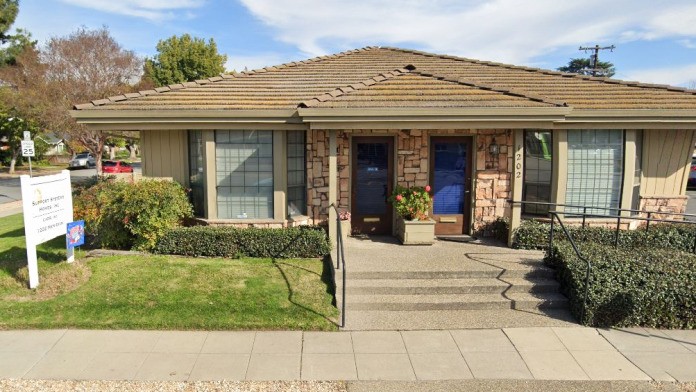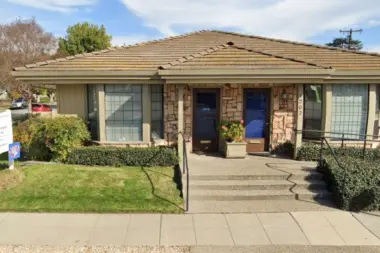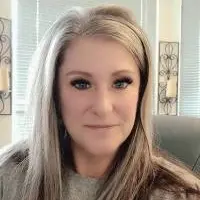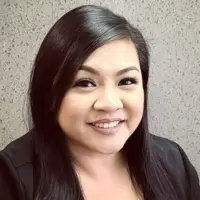About Support Systems Homes
Their residential treatment programs support clients with severe addictions and co-occurring mental health conditions. Following a comprehensive orientation and assessment, clients work individually with a certified counselor and connect with a peer buddy. Depending on their needs, they can access a range of services based on different treatment modalities, including cognitive behavioral treatment, dialectical behavioral therapy, rational emotional behavior therapy and medical nutrition therapy.
Medical staff can use MAT to assist clients in detoxing from opioids or other drugs, using buprenorphine to help control and manage symptoms. In addition to one on one and family counseling, clients also have access to other services including appointment transportation, fitness services, recreational opportunities, and medication monitoring.
Their outpatient services include multiple layers of care for clients with early-phase or low-intensity addictions. This may include individual or group counseling, educational programming and access to legal system advocates as required. Clients can also attend classes to learn relapse prevention strategies and life skills. Day treatment is available for some clients, including those living in one of the center’s sober living houses.
Their aftercare program supports clients in maintaining sobriety after graduating from a residential or outpatient program. Services may include access to sober living houses, connections to 12-step programs, and ongoing medical monitoring. Clients also have lifetime, no-cost access to the center’s alumni programs and events.
Support Systems Homes is accredited by The Commission on Accreditation of Rehabilitation Facilities. They work with most major insurance providers, including Ambetter, BlueCross BlueShield, Cigna and Humana. Contact your insurance provider to verify coverage because out of network benefits can vary.
Latest Reviews
Rehab Score
Gallery


Other Forms of Payment
Private insurance refers to any kind of healthcare coverage that isn't from the state or federal government. This includes individual and family plans offered by an employer or purchased from the Insurance Marketplace. Every plan will have different requirements and out of pocket costs so be sure to get the full details before you start treatment.
Self-pay involves paying for treatment out of your own pocket. You can use savings or credit, get a personal loan, or receive help from family and friends to fund your treatment. If you don't have insurance or your insurance plan doesn't cover a specific program, self-pay can help ensure you still get the care you need.
Addiction Treatments
Levels of Care
"Residential Treatment" at Support Systems Homes is just like it sounds. Patients stay at one of their residential drug/alcohol treatment centers for the course of their rehab program. This method of rehabilitation offers support and structure. The length of stay is determined by individual treatment plan. Support Systems's expert clinical and counseling staff will provide the services necessary to help you achieve long-term recovery from your addiction.
Drug and alcohol addiction often takes a heavy toll on one's body. Over time, a physical dependence can develop, meaning the body physiologically needs the substance to function. Detox is the process of removing drugs and/or alcohol from the body, a process that can be lethal if mismanaged. Medical detox is done by licensed medical professionals who monitor vital signs and keep you safe, healthy, and as comfortable as possible as you go through detox and withdrawal.
At certain points in the recovery process, it's important to have support available 24/7. 24-hour clinical care offers a safe environment in which to recover from drug or alcohol addiction in peace, knowing medical detox and other treatment will happen with professionals on hand.
Support Systems Homes offers flexible, multi-level outpatient rehab programs for clients who are stabilized in terms of their addictions, but seeking a less-intensive treatment option than a residential treatment program. Support Systems Homes offers flexible, multi-level outpatient rehab programs for clients who are stabilized in terms of their addictions, but seeking a less-intensive treatment option than a residential treatment program. This level of care is an excellent choice for those who work, attend school or have similar commitments.
12-step programs are addiction recovery models based on Alcoholics Anonymous (AA). A number of substance abuse programs (including some drug and alcohol rehab centers) use the 12 steps as a basis for treatment. Beginning steps involve admitting powerlessness over the addiction and creating a spiritual basis for recovery. Middle steps including making direct amends to those who've been hurt by the addiction, and the final step is to assist others in addiction recovery in the same way. 12-Step offshoots including Narcotics Anonymous (NA), Cocaine Anonymous (CA), Dual Recovery Anonymous (DRA), Sex and Love Addicts Anonymous (SLAA) and Gamblers Anonymous (GA).
The recovery process does not end when an individual completes our drug treatment programs. Continuing support is the key to a healthy recovery from addiction. Treatment is just the beginning of a lifelong process of growth and recovery in all areas of life affected by drug addiction/alcoholism. In order to provide a complete, supportive continuum of care, Support System Homes provides weekly aftercare for program graduates (residential, day, or outpatient treatment). Aftercare program consists of a weekly group facilitated by an experienced counselor who helps guide clients in their recovery efforts, assisting them in meeting the goals contained in their continuing care plans. Aftercare is a forum in which clients may explore successes, obstacles, and day to day issues that confront them, receiving feedback and support from the group facilitator and other participants.
Sober living plays a critical role in the process of recovering from drug and alcohol abuse. Support Systems Homes has numerous Sober Living/Transitional Housing Units throughout Santa Clara County, which provide clean, safe, drug-free living environments. Every Support System Home's Sober Living Home is supervised by a House Manager and assistant who ensure that the sober living environments offer structure and strong peer support. Clients work, attend treatment, or attend school during the day, and engage in recovery activities in the evenings. Residents must stay active in recovery activities. They must attend five 12 step-related meetings and five in-house meetings each week. Each resident acquires an AA or NA sponsor or temporary sponsor within 15 days of entering our sober living environments.
Treatments
The goal of treatment for alcoholism is abstinence. Those with poor social support, poor motivation, or psychiatric disorders tend to relapse within a few years of treatment. For these people, success is measured by longer periods of abstinence, reduced use of alcohol, better health, and improved social functioning. Recovery and Maintenance are usually based on 12 step programs and AA meetings.
Drug rehab in California teaches participants constructive ways to stay clean and sober. Treatment revolves around helping individuals stop using the substance they are addicted to and learn healthy habits to avoid relapse.
Opioid rehabs specialize in supporting those recovering from opioid addiction. They treat those suffering from addiction to illegal opioids like heroin, as well as prescription drugs like oxycodone. These centers typically combine both physical as well as mental and emotional support to help stop addiction. Physical support often includes medical detox and subsequent medical support (including medication), and mental support includes in-depth therapy to address the underlying causes of addiction.
Substance rehabs focus on helping individuals recover from substance abuse, including alcohol and drug addiction (both illegal and prescription drugs). They often include the opportunity to engage in both individual as well as group therapy.
Programs
Adult rehab programs include therapies tailored to each client's specific needs, goals, and recovery progress. They are tailored to the specific challenges adult clients may face, including family and work pressures and commitments. From inpatient and residential treatment to various levels of outpatient services, there are many options available. Some facilities also help adults work through co-occurring conditions, like anxiety, that can accompany addiction.
Young adulthood can be an exciting, yet difficult, time of transition. Individuals in their late teens to mid-20s face unique stressors related to school, jobs, families, and social circles, which can lead to a rise in substance use. Rehab centers with dedicated young adult programs will include activities and amenities that cater to this age group, with an emphasis on specialized counseling, peer socialization, and ongoing aftercare.
Clinical Services
Cognitive Behavioral Therapy (CBT) is a therapy modality that focuses on the relationship between one's thoughts, feelings, and behaviors. It is used to establish and allow for healthy responses to thoughts and feelings (instead of unhealthy responses, like using drugs or alcohol). CBT has been proven effective for recovering addicts of all kinds, and is used to strengthen a patient's own self-awareness and ability to self-regulate. CBT allows individuals to monitor their own emotional state, become more adept at communicating with others, and manage stress without needing to engage in substance abuse.
Dialectical Behavior Therapy (DBT) is a modified form of Cognitive Behavioral Therapy (CBT), a treatment designed to help people understand and ultimately affect the relationship between their thoughts, feelings, and behaviors. DBT is often used for individuals who struggle with self-harm behaviors, such as self-mutilation (cutting) and suicidal thoughts, urges, or attempts. It has been proven clinically effective for those who struggle with out-of-control emotions and mental health illnesses like Borderline Personality Disorder.
Research clearly demonstrates that recovery is far more successful and sustainable when loved ones like family members participate in rehab and substance abuse treatment. Genetic factors may be at play when it comes to drug and alcohol addiction, as well as mental health issues. Family dynamics often play a critical role in addiction triggers, and if properly educated, family members can be a strong source of support when it comes to rehabilitation.
Group therapy is any therapeutic work that happens in a group (not one-on-one). There are a number of different group therapy modalities, including support groups, experiential therapy, psycho-education, and more. Group therapy involves treatment as well as processing interaction between group members.
In individual therapy, a patient meets one-on-one with a trained psychologist or counselor. Therapy is a pivotal part of effective substance abuse treatment, as it often covers root causes of addiction, including challenges faced by the patient in their social, family, and work/school life.
Life skills trainings involve all the skills a person must have in order to function successfully in the world. These include time management, career guidance, money management, and effective communication. Truly successful addiction recovery is based on the ability to not only live substance-free, but to thrive. Life skills teaches the practical necessities of functioning in society, which sets clients up for success in life, and therefore sobriety.
Nutrition therapy, aka medical nutrition therapy (MNT), is a way of treating physical, emotional, and medical conditions through diet. Specific dietary plans are designed by professional nutritionists or registered dietitians, and patients follow them in order to positively affect their physical and mental health.
Amenities
-
Residential Setting
-
Private Setting
Staff & Accreditations
Staff

Robert Norton
Founder

Jennifer Dooley
Executive Director

Jeff Delke, CADC III, MFTI
Clinical Supervisor

Jerry Callaway, MD
Medical Director

Melissa To Johansen
Program Manager
Accreditations

The Commission on Accreditation of Rehabilitation Facilities (CARF) is a non-profit organization that specifically accredits rehab organizations. Founded in 1966, CARF's, mission is to help service providers like rehab facilities maintain high standards of care.
CARF Accreditation: Yes
Contact Information
1202 Meridian Avenue
San Jose, CA 95125